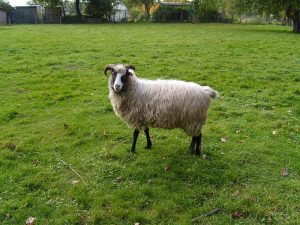Four people have been referred to their health care providers for consultation after being exposed to rabies in Abbeville by a sheep that tested positive for the disease, the Department of Health and Environmental Control reported today.

The sheep was potentially exposed to an aggressive skunk, which was not available for testing, roughly one month ago. Three of the four victims provided routine husbandry care for the sheep. The fourth victim was potentially exposed on May 25, 2015. The sheep tested positive for rabies on May 27.
“To reduce the risk of getting rabies, we recommend that people avoid wild animals acting tame and tame animals acting wild,” said Sandra Craig of DHEC’s Bureau of Environmental Health Services. “About 275 South Carolinians must undergo preventive treatment for rabies every year, with most exposures coming from bites or scratches by a rabid or suspected rabid animal. Wild animals contract the disease most often, but domestic pets and livestock can contract rabies as well.
“If you think you have been exposed to the rabies virus through a bite, scratch or the saliva of a possibly infected animal, immediately wash the affected area with plenty of soap and water,” Craig said. “Then be sure to get medical attention and report the incident to DHEC.”
During 2014, there were 139 confirmed cases of animal rabies in South Carolina. There have been 61 confirmed cases in animals statewide this year. This animal is the first to test positive in 2015 from Abbeville County. There were two that tested positive in that county in 2014. This is the 14th livestock animal to test positive for rabies in the state since 2002.
South Carolina law requires pet owners to vaccinate dogs, cats and ferrets. The law does not require owners of agricultural animals to vaccinate for rabies, although rabies vaccines for cows, horses and sheep have been approved by the U.S. Department of Agriculture.
However, DHEC strongly recommends vaccinating:
- Horses, cattle and sheep that have frequent contact with humans
- Livestock that are particularly valuable
- Animals used for raw milk or raw milk product production.
In addition, horses must be vaccinated for rabies before being transported out-of-state.
If you see a wild animal that seems sick, contact your local animal control office, veterinarian, or wildlife rescue/rehabilitation group for help. If you see a wild animal acting strangely among a herd of livestock, contact your local DHEC Environmental Quality Control Office, found athttp://www.scdhec.gov/HomeAndEnvironment/DHECLocations/.


One thought on “Rabies positive sheep exposes four in Abbeville County”